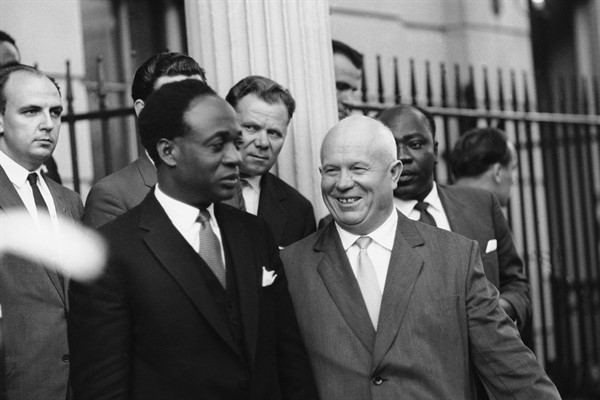In 1956, then-Soviet Premier Nikita Khrushchev executed a sharp but largely forgotten reorientation in his country’s foreign policy. During the long decades under Josef Stalin, with the exception of its support for communist China, Moscow had focused almost all of its energy abroad in buttressing client states in Eastern Europe. But with one major speech, Khrushchev announced that the era of investing only in Russia’s “near abroad” was finished.
Taking his cues from the 1955 Asian-African Bandung Conference in Indonesia that launched the Non-Aligned Movement, and anticipating the huge wave of newly sovereign countries that would commence with Ghana’s independence from Britain in 1957, the Soviet leader announced that the USSR was determined to assist newborn countries throughout what was then called the Third World in their pursuit of political and economic independence from the West.
It is one thing to give a speech and quite another to quickly steer the ship of state in a dramatically new direction, but the Khrushchev government wasted little time in turning its new policy into a reality. Under his leadership, the so-called developing world quickly went from being an afterthought in Soviet foreign and economic policy to becoming a mainstay of its global strategy. In fact, from 1950 to 1975, trade between Comecon, as the Soviet-led economic bloc was known, and the Third World increased seventeenfold.

